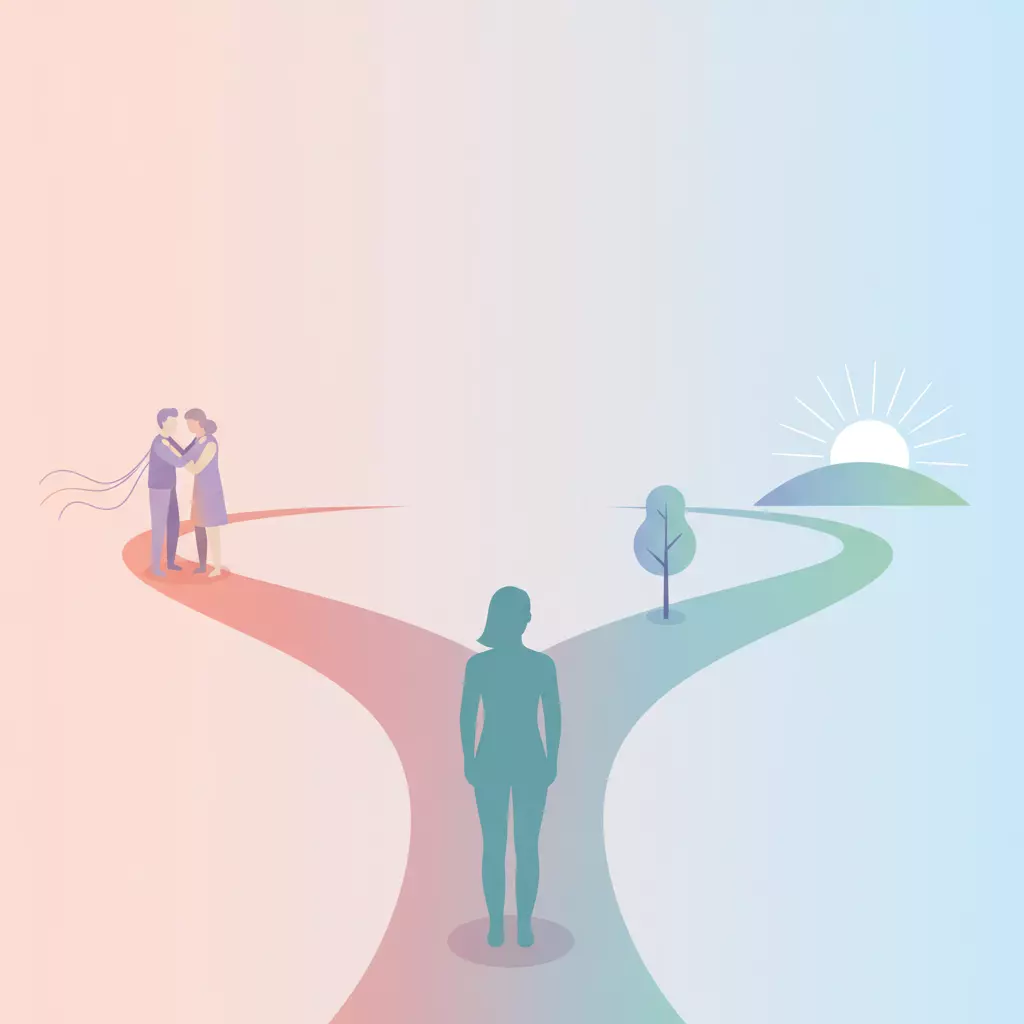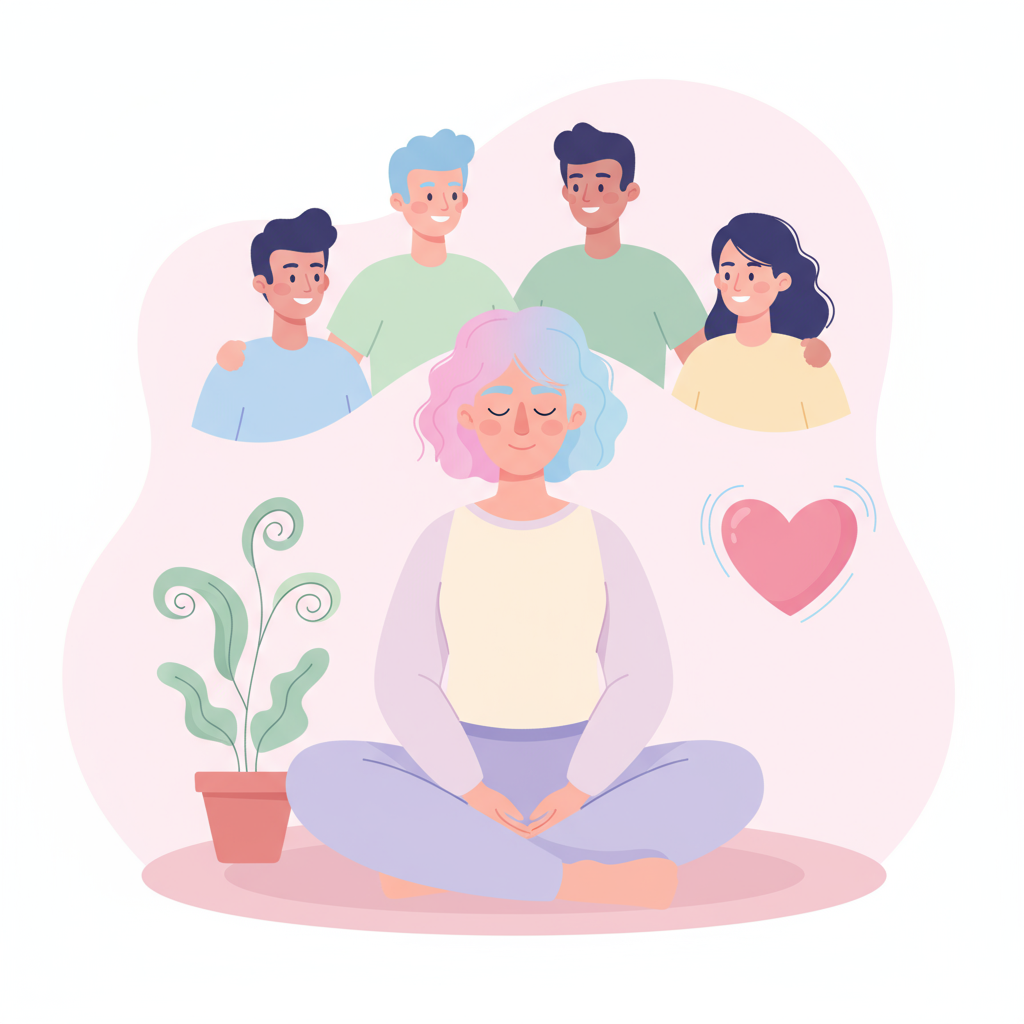Table of Contents
You never thought the bar would feel haunted.
Not haunted like ghosts and cold air and flickering lights—but haunted like walking into a place where your old laugh still lingers. Where a song reminds you of when his hand touched yours. Where your mutual friends don’t know whether to hug you or ask if you’re okay.
Reentering shared spaces after a breakup isn’t like flipping a switch. For gay men especially, these aren’t just social settings—they’re survival structures. They’re how we gather, how we heal, how we flirt, find, and remember who we are.
So after heartbreak, they can feel… radioactive. A place that used to hold you might suddenly feel like it could break you.
This isn’t about faking confidence
This checklist isn’t about forcing exposure. It’s about noticing the real, internal shifts that signal your healing is no longer a theory—it’s embodied.
You don’t return to the space the same. You return with a reclaimed sense of self.
Below are three essential signs you’re ready to reenter shared spaces after a breakup—without spiraling.
You’re not panicked — you’re grounded
Here’s a truth most people miss: healing after a breakup isn’t about forgetting someone. It’s about being able to exist in their vicinity without losing your center.
If the thought of being in the same room as him no longer tightens your chest or floods you with emotion, that’s not apathy—it’s regulation. Your nervous system has recalibrated.
Research shows that MSM (men who have sex with men) experience heightened emotional distress after breakups—especially in the first 6 months (Avallone et al., 2023). But over time, those responses begin to fade.
So if you can walk into the party, bar, or brunch without scanning the room for danger or drowning in memories?
That’s your healing speaking in silence.

You’re reconnecting — on your own terms
After a breakup, withdrawing is natural. But when reaching out starts to feel right—not forced—it’s a key sign of progress.
A study tracking men post-breakup (Oliffe et al., 2022) found:
- Those who moved from isolation to social reconnection reported greater emotional stability
- Even light actions like texting an old friend or attending a casual hangout reflected deeper healing
If you feel the pull toward people—especially those who make you feel like yourself—that’s not regression.
That’s reemergence.
And that’s something your ex can’t touch.

No Contact Isn’t a Game – It’s a Healing Strategy
Let’s examine the No Contact strategy in: Science & Psychology, Planning it, Digital Hygiene, Relapses-Cravings & Crashes, Special Cases & Exceptions… and Signs that it’s working +What comes next.
Tap here to read more →You can imagine love again — even abstractly
You don’t need to be dating.
But if you can imagine:
- Laughing with someone new
- Feeling emotionally safe again
- Sharing your weird little quirks with someone who gets you
…and that thought doesn’t cause panic or grief?
That’s a breakthrough.
A recent study (Tiron & Ursu, 2023) showed that people open to future connection—even abstractly—experience more growth and less emotional stagnation.
It’s not about finding someone.
It’s about realizing you no longer live inside the shadow of the last one.

Final reminder
You don’t “return” to shared spaces the way you left them.
- With more clarity
- With emotional boundaries
- With the quiet, grounded power of knowing you’re not there to rewrite the past
You’re there to reclaim a part of your life.
And if you’re asking “Am I ready?”
That’s a beautiful sign that you probably are.
FAQ
Q1. How do I know if I’m ready to reenter shared spaces after a breakup?
You’re likely ready when you can think about seeing your ex without panic or emotional flooding. Feeling grounded, emotionally regulated, and no longer overwhelmed by the idea of mutual social spaces are strong signs that your healing is progressing.
Q2. What are signs that no contact has been working for me?
If you feel more emotionally stable, less anxious, and are beginning to reach out to friends or social events again, these are good signs no contact is helping. It’s not about forgetting the past—it’s about regaining your sense of self.
Q3. Do I need to be dating again to prove I’ve moved on?
No, dating isn’t required to prove healing. If you can simply imagine love or connection without pain or fear, that openness is a valid sign of growth and recovery after a breakup.
Q4. Why do gay men often struggle more with reentering shared spaces post-breakup?
Shared spaces like clubs, events, or tight-knit social circles often overlap with queer identity and history. These spaces carry emotional weight, and reentering them post-breakup can reopen wounds. Healing means being able to reclaim them on your own terms—without spiraling.
Scientific Sources
-
F. Avallone et al. (2023): Relationship Breakup Impact on Mental Health and Safer Sex among Men Who Have Sex with Men in the UK
Key Finding: MSM who had broken up within the past 6 months reported significantly higher anxiety, suicidal ideation, and sexual unhappiness. These effects diminished over time.
Why Relevant: Demonstrates how emotional distress declines with time, making reduced anxiety a key indicator of healing and readiness to reenter shared spaces.
https://pubmed.ncbi.nlm.nih.gov/40699905/ -
John L. Oliffe, Mary T. Kelly et al. (2022): Mapping Men’s Mental Health Help‑Seeking After an Intimate Partner Relationship Break‑Up
Key Finding: Men’s healing often follows a progression from isolation to reconnection through peers, friends, or professional support.
Why Relevant: Provides behavioral markers of healing that align with readiness to return to social environments post-breakup.
https://pmc.ncbi.nlm.nih.gov/articles/PMC9411703/ -
Mihaela‑Laurenția Tiron & Andreea Ursu (2023): Personal growth and psychological well‑being after a romantic break‑up among emerging adults
Key Finding: Personal growth correlates with decreased depression and anxiety and increased openness to future relationships.
Why Relevant: Highlights how imagining future love is a psychological milestone in post-breakup recovery.
https://www.researchgate.net/publication/376140722_Personal_growth_and_psychological_well-_being_after_a_romantic_break
- No Contact Healing: Powerful Habits That Make Breakup Recovery Stick

- Ready to Date Self-Audit: Powerful Green Flags & Values Check for Love

- Reintroducing Contact After No Contact: Powerful Signs, Timing & Likely Outcomes

- Queer Folks Dating After a Breakup: Powerful Signs You’re Healing Without Losing Yourself

- Transgender Healing After Heartbreak: Powerful Signs of Safety, Care & Affirmation

- Lesbian Breakup Boundaries: Positive Signs You’re Ready to Talk Again

- Gay Men: How to Reenter Shared Spaces After a Breakup Without Spiraling (Readiness Checklist)

- Women: 7 Empowering Signs No-Contact Is Working (and Youre Healing)

- Men: 10 Powerful No Contact Signs You’re Healing (Even If You Feel Nothing Yet)

Leave a Reply